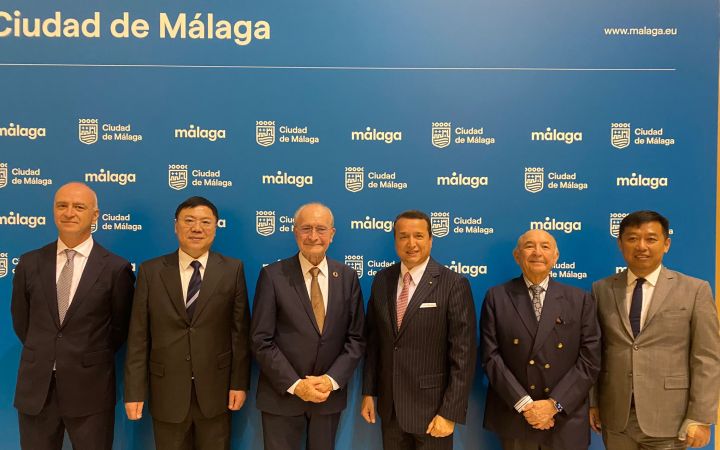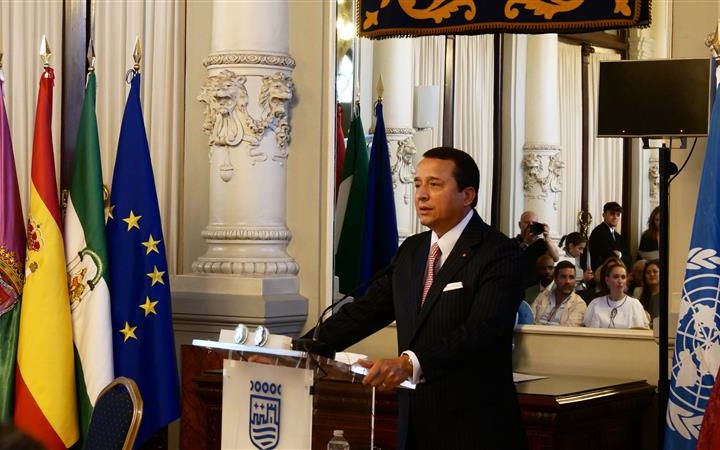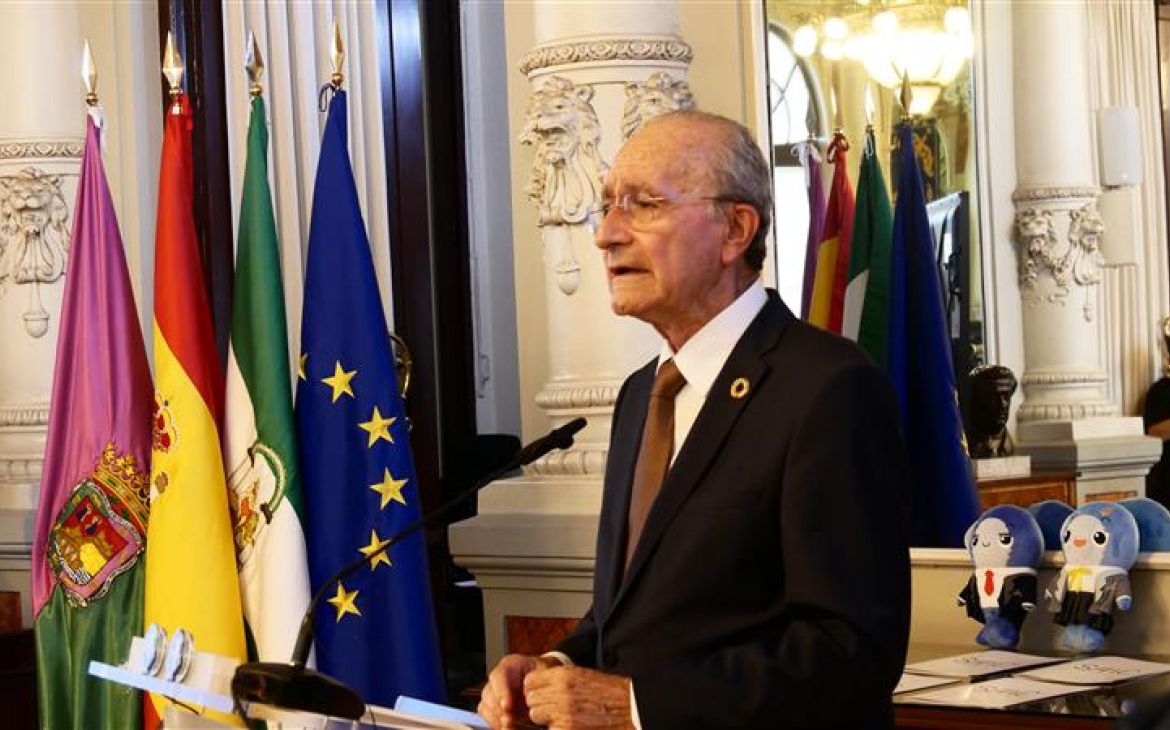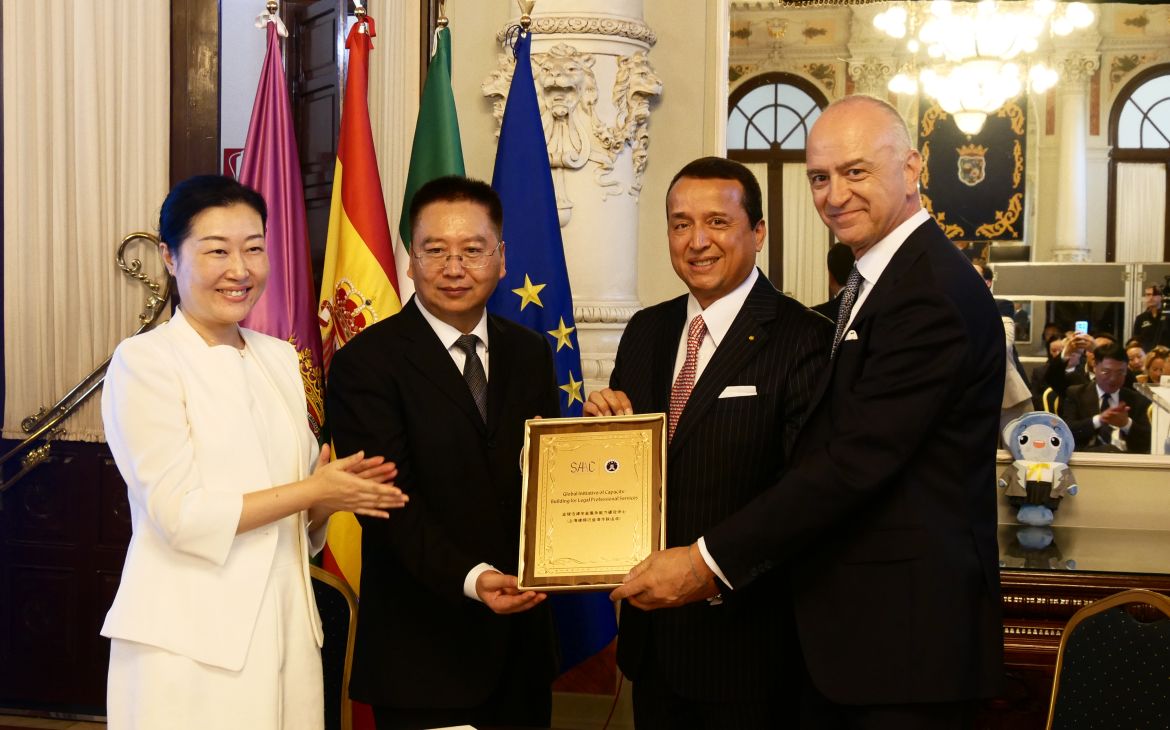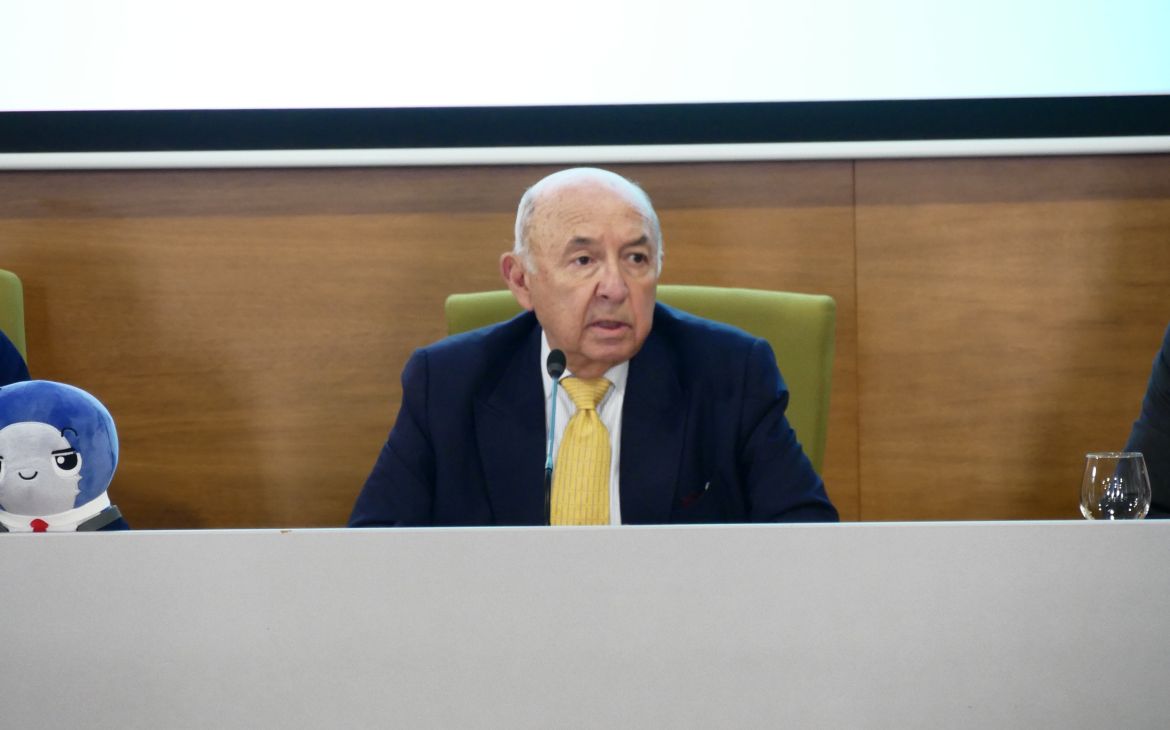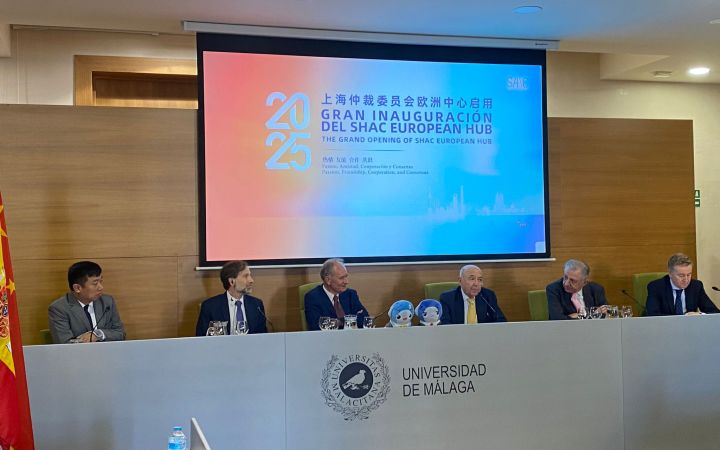5 November 2025, Malaga, Spain — The Shanghai Arbitration Commission (SHAC), in collaboration with the City of Malaga, the University of Malaga, and the United Nations Institute for Training and Research (UNITAR), announced a landmark agreement to strengthen collaboration in international arbitration, trade, and sustainable development. The agreement was formalised during the inauguration of the SHAC European Hub in Malaga, positioning the city as a key European centre linking Shanghai and Europe in commercial dispute resolution and global cooperation.
The inauguration featured a two-day programme held on 21-22 October. The first day included a formal ceremony at the Town Hall of Malaga, attended by distinguished representatives from SHAC, UNITAR, and local authorities. The second day hosted an International Forum on Trade and Peace at the Rectorate of the University of Malaga, bringing together diplomats, legal experts, and international professionals to discuss the future of arbitration and global trade.
A Landmark Partnership
The agreement between UNITAR and SHAC represents a strategic collaboration aimed at promoting:
- Peaceful resolution of cross-border commercial disputes
- Capacity-building and professional training in arbitration and legal cooperation
- Global-local collaboration to support sustainable development goals
This agreement reinforces our shared commitment to dialogue, justice, and cooperation,
said Mr Alex Mejia, Director of UNITAR’s Division for People and Social Development.
Malaga becomes a bridge between Europe and Shanghai, connecting professionals, institutions, and ideas for a more inclusive and sustainable world.
Inauguration of the SHAC European Hub
The SHAC European Hub, the first SHAC office in Europe, was inaugurated at the Town Hall of Malaga with the participation of key representatives from SHAC, the City of Malaga, and UNITAR, including:
- H.E. Francisco de la Torre, Mayor of Malaga
- Mr LI Zelong, Deputy Secretary General, Shanghai Municipal Government
- Mr FAN Mingchao, Executive Vice President, Shanghai Arbitration Commission (SHAC)
- Mr Alex Mejia, Director of UNITAR’s People and Social Development Division.
- Prof. Juan Teodomiro Lopez Navarrete, Rector, University of Malaga
- Mr Julio Andrade, Executive Vice President, CIFAL UNITAR Malaga
- Mr Francesco Cappè, Chief Representative of SHAC in Europe
International Forum on Trade and Peace
On 22 October, the International Forum on Trade and Peace was held at the Rectorate of the University of Malaga, focusing on “Mutual Development of International Arbitration and Commerce.” The forum brought together diplomats, experts, and legal professionals to discuss the evolving role of arbitration in global commerce. Key speakers included:
- Amb. Luis Gallegos, Former Chair of the Board of Trustees of UNITAR
- Amb. Alberto Bradanini, Former Ambassador of Italy in China
- Amb. Jean-Paul Laborde, Ambassador for the Parliamentary Assembly of the Mediterranean, Former Assistant Secretary General of the UN
- Ms Maria Chiara Malaguti, Professor of International Law at Università Cattolica, past President of UNIDROIT
- Mr Juan José Ruiz, Head of Cuatrecasas Malaga Office
- Mr Manuel Torres, Managing Partner, Garrigues Shanghai
The discussions highlighted that commerce and peace are inseparable pillars of sustainable development, and that international arbitration and global trade are not merely economic instruments, but essential pathways toward mutual trust, fairness, and stability.
Key Perspectives from the Forum
Mr Alex Mejia, UNITAR Director for the Division for People and Social Development, reflected on the broader vision of cooperation and the role of Malaga as a hub for dialogue:
The world is entering a new era of leadership, with China at its core. Its growing domestic market, commitment to multilateralism, and expanding role in global governance signal a historic transformation. The question is no longer whether this change will happen, but how we will choose to be part of it. The SHAC Hub stands as a living example of international dialogue and cooperation shaping that future.
Ambassador Luis Gallegos, former President of the Advisory Board of UNITAR, emphasised the importance of dialogue and consensus in times of uncertainty:
Trade is navigating a time of great uncertainty. Now is the moment to sit down and carefully analyse conflict resolution; we need to build consensus despite our differences. Sometimes, we think of the pandemic as an international crisis that opened a new chapter: populations no longer fully trust the governance we have, and this presents an opportunity to start conversations and foster dialogue within our societies.
Mr Mingchao Fan, Executive Vice President of the Shanghai Arbitration Commission (SHAC), underscored the real-world consequences of trade policies and sanctions:
You cannot destroy your enemies without destroying yourself. Sanctions also harm people and trade, as when the price of food and medicine rises, lives are affected and sometimes lost. Do you know how many people died due to sanctions on Iraq? We need to rethink these issues and be aware that lives are also impacted by sanctions and trade.
Ms Maria Chiara Malaguti, Full Professor of International Law at Università Cattolica and past President of UNIDROIT, highlighted the role of arbitration and shared rules in fostering peace and justice:
Arbitration has been a cornerstone of commerce, providing a fair framework to resolve conflicts and find the best solutions. Addressing global human rights challenges requires common rules and standards that consider all stakeholders, a foundation essential for peace.
The forum reinforced the principles of peaceful conflict resolution, multilateral cooperation, and the importance of education, innovation, and capacity-building to prepare future generations for complex global challenges. Initiatives like the SHAC European Hub and the CIFAL Global Network exemplify how international collaboration can be translated into tangible impact, supporting both the 2030 Agenda and the Sustainable Development Goals.


